Pathways NZ Diploma in Christian Studies (Christian Leadership) Level 6
NZ Diploma in Christian Studies (Christian Leadership) Level 6
Unlock your true leadership potential with Christian Leadership Studies. The New Zealand Diploma of Christian Studies (Level 6) in Christian Leadership is a 120-credit programme accredited by NZQA. This unique Christian Leadership training links students to a host organisation, such as a church, mission, or faith-based group, for the duration of the programme. You will engage in two practical placements at the host organisation and complete two corresponding placement papers. This hands-on approach offers opportunities to build relationships and gain leadership experience in real-world settings. In addition, students attend four block courses held at Pathways Bible College in Papamoa Beach, Tauranga, where you will participate in classroom learning.
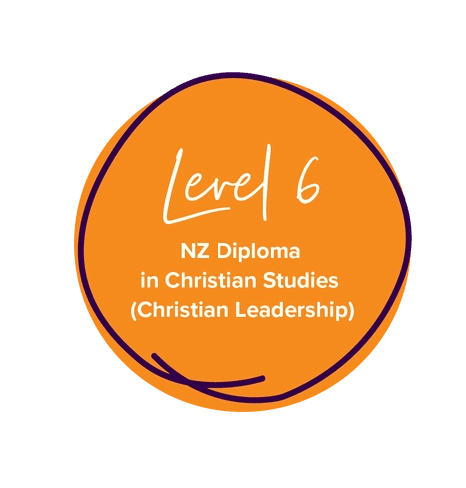
What will I be studying?
This qualification will equip you with effective people management and event management skills along with the ability to provide strategic leadership.
Leadership: Biblical Principles and Models
Develop your critical thinking skills by exploring the nature of leadership, including effective principles and models. You will also explore the implications of leadership within social and religious communities, specifically within congregations and other faith-based organisations.
Leadership: Identity and Calling
A leader must lead from within, making self-awareness essential for effective leadership. This paper focuses on helping you understand the concept of imago Dei, or identity, as well as how you can contribute to God's purposes in your context, or your call. The importance of theological reflection in increasing the likelihood of effective leadership is emphasised.
Relational Leadership: Empowering, Ethical and Inclusive
Through exploration of Christian theology, specifically the doctrine of the Trinity, you will develop skills for comprehending human relationships and community. These theological resources will be used to provide insight and understanding on this topic.
Working with Groups (Placement)
You will learn essential principles and strategies for leading and collaborating effectively in group settings. An important aspect of effective group dynamics is the ability to identify common causes of conflicts within groups.
Leading in Digital and Secular Culture
To be an effective leader, it is important to have a comprehensive understanding of the cultural context. This includes the ability to identify and interpret cultural artifacts and trends. In the 21st century, secularism and digital technology are two crucial aspects of New Zealand culture.
Leadership in Context (Placement)
You will demonstrate how your in-depth understanding of theology and biblical foundations shape the way you manage and lead people in a range of contexts, groups, and roles through an extended Field-Based Placement.
Strategic, Missional and Resilient Leadership
You will consolidate all of your learning by creating a personalised model for leadership that incorporates biblical, theological, and theoretical perspectives. Through this programme, you will be able to develop a sustainable and resilient strategy for missional leadership that is guided by your personalised model.
Host Organisations
You will have the opportunity to be aligned with a Host Organisation throughout the year, which can be a church, mission, or parachurch organisation. This connection will provide you with regular opportunities to engage with your organisation. Additionally, during the year, you will complete two practical placement papers, typically taking place in May and September to October, at the Host Organisation.
You will have plenty of opportunities to build relationships and learn leadership skills in practical settings through this programme's structure. Along with this, you will participate in four block courses throughout the year, where you will connect with your cohort and lecturers.
What can this course lead to?
The course in Christian Leadership training can lead to a variety of outcomes, including personal and spiritual growth, enhanced critical thinking and analytical skills, improved interpersonal and communication skills, and the ability to effectively lead and manage individuals or groups within a faith-based setting. Additionally, successful completion of the course can lead to a range of career opportunities, including roles in ministry, church leadership, nonprofit organisations, and other leadership positions in Christian faith-based settings. Ultimately, the course can provide a strong foundation for individuals seeking to make a positive impact within their community through leadership within a Christian context.
Completing a course in Christian leadership can lead to further study towards a Bachelor's degree. Credits earned in our Level 6 course can be considered for cross-crediting to further study at University of Otago, Laidlaw College, or Carey Bible College. This allows for a quicker completion of an undergraduate degree programme in fields such as theology, religious studies, and leadership studies or taking additional courses in related fields.
Pathways is pleased to be affiliated with these three leading education providers of Theological Studies in Aotearoa New Zealand with whom we have a Memorandum of Understanding. This allows students who hold a Level 5 Diploma of Christian Studies, the opportunity to be admitted to Level 6 programmes at these institutions. Students with a Level 6 Diploma can apply for consideration of cross-credits at these other providers.
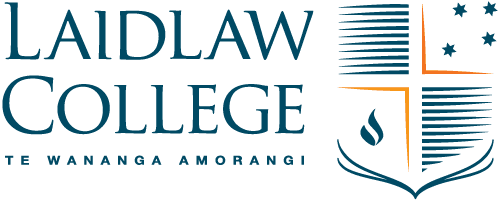
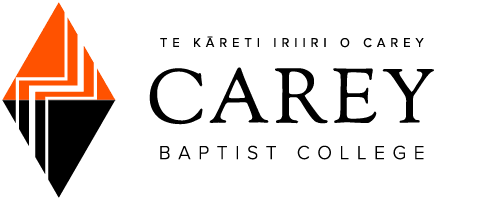
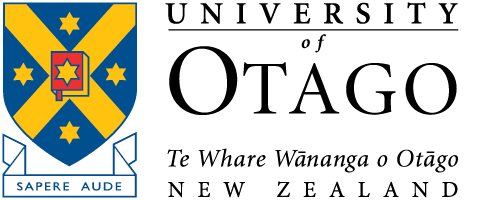
Entry Criteria
Academic Requirements
For entry into this programme:
All applicants must have evidence of support from a host organisation to carry out practical components of the programme, and
New Zealand Diploma in Christian Studies (Theological Studies) (Level 5) with strands in Chaplaincy, Christian Leadership, Intercultural Studies, Performing Arts, Te Minita Taha Māori, and Theological Studies [Ref: 2793], or
New Zealand Certificate in Christian Studies (Theological Studies) (Level 5) with strand in Christian Ministry [Ref:2771], or
Have a broad understanding of theology and biblical foundations with a ministry role in a faith-based community.
Students aged 18 - 25 must have experience working with children or young people in a church, camp or community group.
Before enrolment in this programme, each student will have:
Minimum qualifications of NCEA Level 2 literacy (or equivalent).
Minimum age of 18 years old at the time of commencing study for this qualification. In exceptional circumstances, entry for a student younger than 18 years will be at the discretion of the Principal.
International Students
At entry to the programme all students for whom English is an additional language, will be required to provide evidence that they fulfil requirements as stated in NZQA Rule 22 of the Programme Approval, Recognition and Accreditation Rules.
Students must be 18 or older by the start date of the qualification they are applying for, and students will have:
Successfully met New Zealand University entrance requirements
Completed Year 13 in a New Zealand Secondary School;
OR, attained one of the following from a single test report
• IELTS Academic Score of 6.0 with no band score lower than 5.5
• TOEFL score of 60 with a writing score of 18
• Cambridge English - B2 First, or B2 First for schools, or C1 Advanced, or C2 Proficiency with a score of 169 in each skill.
• NZCEL - Level 4 (Academic) score of 50 with no band score lower than 42.
• Trinity ISE - ISE II with no less than distinction in any band.OR, have evidence of having successfully completed at least (5) years of secondary school or NZQA Levels 4 and 5 in a face to face, course of study which is delivered in the English language in a country listed in rule 22.5 (i.e., New Zealand, Australia, Canada, the Republic of Ireland, South Africa, the United Kingdom and the United States).
For more information about applying to study at Pathways College as an International Student, please contact the Pathways College office.
Other Documentation
As part of the application process, all applicants must provide a copy of their Passport or Birth Certificate, verified by a Justice of the Peace. Find a Justice of the Peace near you by visiting https://justiceofthepeace.org.nz.
Special Entry
New Zealand applicants who do not meet the standard entry requirements may apply for Special Entry. This considers a person’s life experiences and employment history to determine their suitability to study at Diploma Level 6 or above. Students seeking special entry:
Must be over the age of 20, and
Must submit a Curriculum Vitae, or equivalent, that includes work history, or
Provide a written reference and suitable recommendation from a past or current employer outlining work completed (minimum 3 months employment), or
Provide evidence of prior learning that indicates an ability to study at Diploma Level 6.
Police Vetting
Consistent with the requirements of the Vulnerable Children Act 2014, all applicants must undergo a Police Vetting check as part of the enrolment process. Admission into the programme is subject to a satisfactory outcome of this check. With their enrolment, applicants will need to submit a signed copy of the Police Vetting Service Request & Consent Form, along with one form of ID from each of the following lists.
Primary ID (select one):
Passport (NZ or Overseas)
NZ Firearms Licence
NZ Full Birth Certificate (issued during or after 1998)
NZ Citizenship Certificate
NZ Refugee Travel Document
NZ Emergency Travel Document
NZ Certificate of Identity
Secondary ID (select one):
NZ Driver's Licence
18+ Card
NZ Full Birth Certificate (issued before 1998)
Community Services Card
SuperGold Card
NZ Employee Photo ID card
NZ Student Photo ID card
Inland Revenue Number
NZ issued utility bill (issued not more than six months prior)
NZ Teacher's Registration Certificate
NZ Electoral Roll Record
International Driving Permit
Fee Information
2025 Fees (see notes below)
Full-time Fees
NZQA Diploma in Christian Studies (Christian Leadership) Level 6 – 120 Credits
Item | Domestic | International |
|---|---|---|
Tuition | $6,971 | $13,942 |
Student Course Costs | $2,351 | $2,351 |
Total | $9,322 | $16,293 |
Part-time Fees
NZQA Diploma in Christian Studies (Christian Leadership) Level 6 – 120 Credits
(2 years part-time) - 60 Credits per year
NZ DOMESTIC STUDENTS ONLY
Year 2 - 2025 | Year 1 - 2025 | Year 2 - 2026 | |
|---|---|---|---|
Application Fee (if applicable) | $0 | $100 | $0 |
Course Fees: | |||
• Tuition | $3,487 | $3,484 | $3,583 |
• Student Course Costs | $1,175 | $1,176 | $1,207 |
Total Course Fees | $4,662 | $4,660 | $4,790 |
INTERNATIONAL STUDENTS ONLY
Year 2 - 2025 | Year 1 - 2025 | Year 2 - 2026 | |
|---|---|---|---|
Application Fee (if applicable) | $0 | $100 | $0 |
Course Fees: | |||
• Tuition | $6,974 | $6,968 | $7,166 |
• Student Course Costs | $1,175 | $1,176 | $1,207 |
Total Course Fees | $8,149 | $8,144 | $8,373 |
Other Fees (applies to all programmes)
Item | Domestic |
|---|---|
Application for Enrolment Fee (Non-refundable, applies to new students only) | $100 |
Application Processing for Recognised Prior Learning/Credit Transfer | $50 |
Replacement Diploma or Transcript | $30 |
Replacement Student ID Card | $20 |
Notes:
All prices include GST.
Fees are subject to change without notification.
The fees for the Level 5 and 6 diploma courses include the cost of accommodation and food during the intensive block-course weeks and all study notes. Incidental costs associated with study such as travel, stationery, accommodation during your ministry placement, or other costs relating to your particular ministry placement are not included in this fee schedule.
The International Student fees for students enrolled in the Level 5 and 6 diploma courses do not include airport transfers, costs associated with visa applications, insurances and other associated travel expenses. These are the sole responsibility of the applicant.
Fee and Payment FAQs
Can my church or placement organisation pay my fees?
Yes, your church or placement organisation can pay your fees, but the invoice will be addressed to you. Regardless of the source of payment of your fees, you are responsible for ensuring that these are paid by the due date listed on your invoice.
When will I receive an invoice?
You will receive an invoice for your course fees once your enrolment has been confirmed.
Can I get a refund if I withdraw from my course or programme?
If you withdraw from a course or programme within the first two weeks of semester, you will receive a refund of your fees (minus your non-refundable application fee). After the second teaching week you may still withdraw from your course or programme but you will not be eligible for any refund.
Why are my fees deposited into a Public Trust account?
All student fees are paid directly to Public Trust. In accordance the Education and Training Act 2020 and the Student Fee Protection Rules 2021, Pathways College uses the Public Trust to protect all fees paid by students in connection with their study. The Public Trust transfers these funds to Pathways College in monthly instalments spread over the duration of your study. This ensures that your fees are protected from situations which may see our institution having to close. In the unlikely event that Pathways College may close down, any unused portion of student fees at the time of closure, including tuition and accommodation fees, are refunded to the student in accordance with NZQA's policy.
Are there scholarships available?
Students serving in CCCNZ / Open-Brethren heritage churches are eligible to apply for the JH Baldwin Scholarship provided by the Lichfield Lands Incorporated Society AND/OR Lichfield Lands Internship Support. For more information, visit www.3trustsscholarships.nz.
Some local churches also support individual students with their tuition fees.
Does this course qualify for Fees Free Study?
If you're a New Zealand citizen or resident and you're about to start your first year of tertiary, you could be eligible for up to one year of fees free study. Check if you are eligible by visiting www.feesfree.govt.nz.
Please note fees free is not available for students enrolling into Online Courses or School of Worship Leading, as these are not NZQA accredited
Does this course qualify for StudyLink financial support?
Yes. Student Loans and Allowances.
Level 5 and 6 Diploma students at Pathways are eligible for government loans and allowances. You will need to apply directly to StudyLink to begin the process of getting any government loans and allowances.
Visit www.studylink.govt.nz and apply early.
NZQA Requirements
This is an NZQA (New Zealand Qualifications Authority) approved qualification which means you are eligible to apply for Government loans and allowances. Doing supervised ministry enables interns to benefit by learning from experience leaders in a hands-on practical context within the church or para-church organisation.
Applicants for this qualification may also be eligible for the Government’s Fees-Free programme, making study at Pathways completely free. Visit www.feesfree.govt.nz to check your eligibility.
How to Enrol
Before you enrol
Applicants must provide evidence that they have the support of a placement church or para-church or mission. This is necessary because without this support a student will not be able to meet the practical requirements of their study at Pathways Bible College. Typically completion of the ‘Internship Placement Form’ by the placement leader at the time of enrolment is sufficient evidence. We will contact the applicant if further information is required.
If you don't have a potential placement organisation, please contact us. We have a lot of partner organisations we could may be able to connect you with.
Ready to enrol?
If you are ready to start your enrolment process, click on the Enrol Now button. While you can can Save and Continue your enrolment, it is a good idea to have the following items ready before you apply:
A placement in an organisation
A form of identification. This could be:
A verified copy of your Passport, or
A verified copy of your Birth Certificate, or
A verified copy of your New Zealand Citizenship Certificate
(Note that if you are an International Student, you are required to provide your passport as your primary form of ID, and the original must be sighted in person by a staff member of Pathways College before your study begins.)
Selection process
The decision on whether to offer a place in the programme is determined by the Academic Management Committee and takes into account all the evidence supplied to demonstrate the applicant’s ability to study at the required academic level. Once a decision is made the applicant will be advised in writing of the outcome.
If you're unsure about anything please contact enrolments@pathways.ac.nz
